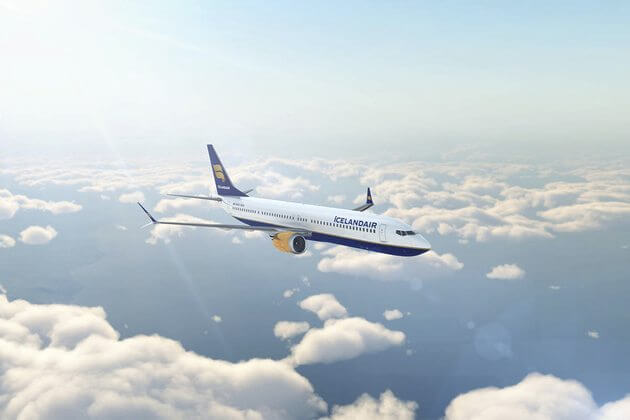The grounding of Boeing 737 MAX was one of the reasons for Icelandair’s higher net loss in the second quarter of this year. The Icelandic carrier expects to lose USD 140 million due to the grounding.
Icelandair was still making losses in the second quarter, the grounding of the Boeing 737 MAX cost at least USD 50 million in the first half of 2019. EBIT was negative and amounted to USD 24 million, which means that it worsened by USD 20 million on a yearly basis. The net loss increased from USD 24 million to USD 34 million.
The number of passengers increased by 16%, while the capacity increased by 8%. Load factor improved by 4.7% points to 85%. Although the effective fuel price increased by 5%, other operating costs decreased by 5%, while other expenses were reduced by 17%. The carrier also improved its punctuality. 72% of all arrivals were on time compared to 60% last year.
However, due to the Max suspension, Icelandair estimates that its operating profit will be reduced by USD 140 million. The Icelandic carrier had to wet-lease additional three Boeing 767s, one Boeing 757 and one Airbus A319. These were obviously less efficient than the Max and costs of leasing were truly high.
Icelandair intends to claim compensation. After the return of 737 Max to service the total cost of the grounding will be estimated.
The fleet of the airline currently comprises of five Boeing 737-8s and one Boeing 737-9s. Additional four 737-8s and six 737-9s will be delivered in the future.
Boeing 737 MAX’s effect will have a negative impact on the carrier’s profit. The airline expects that full-year EBIT will be negative USD 70-90 million.
Icelandair eyes Airbus A321neos
Icelandair has announced that its fleet strategy assumes that Boeing 757-200s, Boeing 767-300s and 737 MAXs will remain in operation until 2025. Maxes are to support the development of the fleet and replace the oldest 757s, which will be gradually retired.
The long-term strategy is currently being prepared and three scenarios for fleet expansion are being considered. The first one assumes its rapid renewal with Airbus A321neos, which will be introduced alongside with 737s. The second one assumes a faster withdrawal of 757s, which will be replaced with new Airbus and Boeing aircraft. The third scenario implies to completely phase-out all Boeing aircraft in the next few years and focus on Airbus fleet only incl. A321neos, A321LRs and A321XLRs.
Airbus A321LR and A321XLR are identified as the best replacement for outdated 757s. If Icelandair is to focus on unified fleet then the airline would choose the 3rd option.

